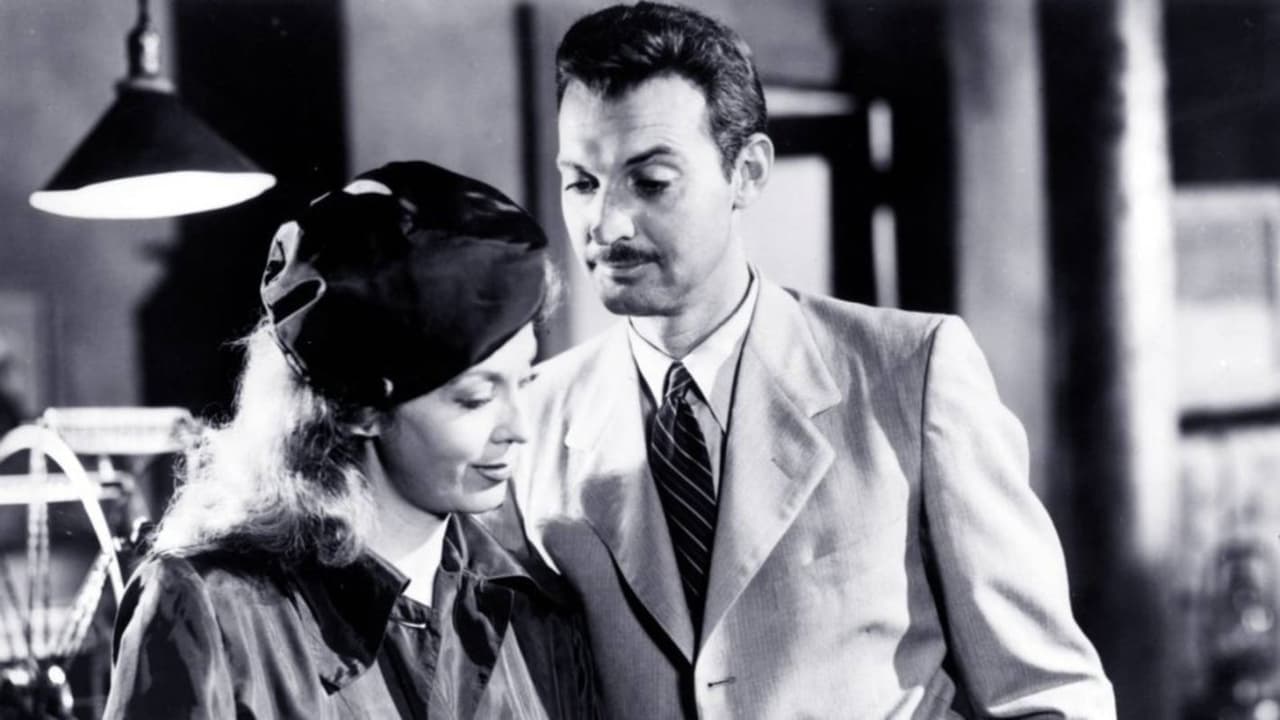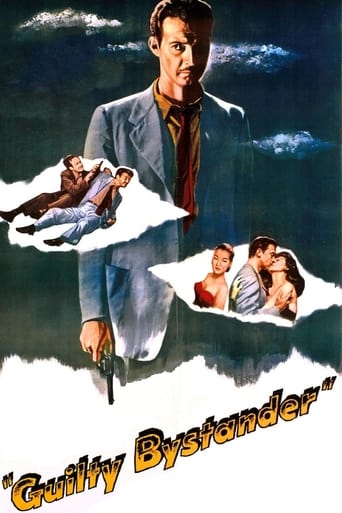

This looks like someone read about Film Noir, made some notes on the main elements, then schlocked a movie together. Lerner thought "We'll take my 'C-Man', darken it, cut the budget by 75%, replace action with dialogue ..." You could have shot it in 1 room: a desk in one corner, bed in another, jail in a third, bar in the 4th.It's dark. In fact one of the key scenes - a few minutes long - is pitch black. You hear noise, dialogue, ... there's a shot ....The sleazy girl tells you how sleazy she is; but she's got a good heartThe anti-hero hero is consumed by despair and alcohol. In the laughable opening scene with his ex-, he's too drunk to talk but sobers instantly when he learns his son is kidnappedThroughout the story he yells and barks out his lines, as does the police captainThe story wraps up like a play or murder-mystery: a character tells what/how/why it all happened. Some of this might have been shown to us along the way.Worth seeing FDR's ex- daughter-in-law and some other character actors in their early days. Scott overacts even when there's nothing going on. If you like Noir, check it out. But have a backup plan. Maybe go cook something while you listen to it.
... View MoreThis is beautifully photographed and features a score by Dimitri Tiomkin. Scott to me was always an uneven actor, there just doesn't seem to be much going on behind his eyes but he's pretty good in this film. The main character seems intent on remaining drunk and finding his son and for most of the movie he's more successful at finding drinks nearly everywhere he goes. There is a memorable chase/fight sequence in the New York subway, seemingly done for real on real locations, at another point there is a room full of corpses found post shoot out. And another scene on a darkened staircase that is well done on all levels.But what drags the movie down is the seemingly shapeless plot or lack of one, and long dialog scenes which I guess in some instances are supposed to be romantic but are just long and talky. Nevertheless there are memorable moments of noir photography and music. It may not ultimately work, but is not without scattered virtues of production and performance.
... View MoreThis movie presents a curious case. It obviously was made on a rock-bottom budget (and looks it); its plot -- about a kidnapped boy -- is as hard to follow as The Big Sleep's, without any of that movie's big-studio glamour and high gloss; and prints of the movie in circulation, with poor sound and visuals, don't help its reputation either. Nonetheless, Guilty Bystander has a few very strong points in its favor. Chief among them is the old pro Mary Boland as Smitty, the proprietress of a fleabag hotel several notches below the threshold of respectability; she's a scheming old battleax who has more going on under her unkempt wisps of grey hair than she wants her cronies and go-fers to know. Next there's Zachary Scott, as Max Thursday, an ex-cop now sleeping off benders in the same fleabag, where he's kept on as the house dick; an underrated actor, he invests his loser's role with a painful intensity, stumbling and limping from skid row to waterfront to warehouse in pursuit for the son he hasn't seen in years. As his ex-wife and mother of the kidnapped boy, Faye Emerson (Mrs. Elliott Roosevelt to you), brings more than her fabled bone structure to the part. In fact, with better acting than you have any right to expect (plus an unrelentingly depressing milieu), Guilty Bystander is more than a curio; it's as if the cast knew what a lousy movie they signed up for and decided to go for broke anyway.
... View More